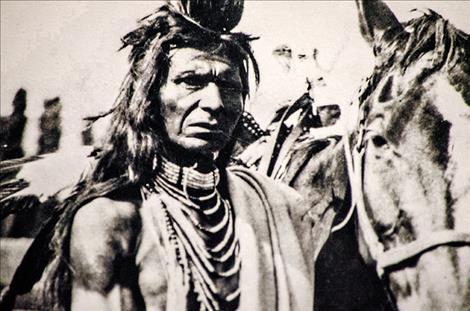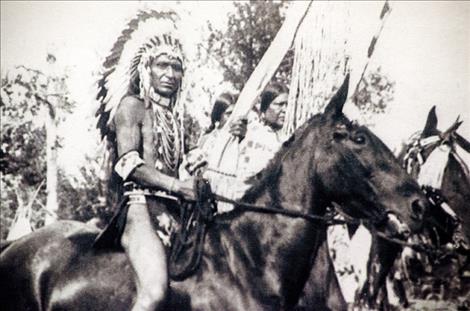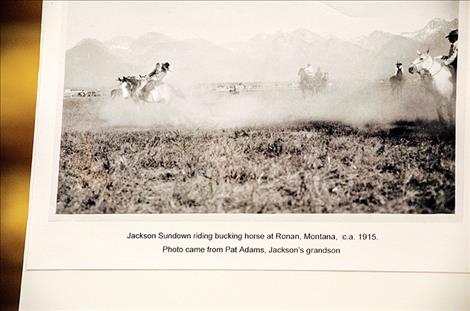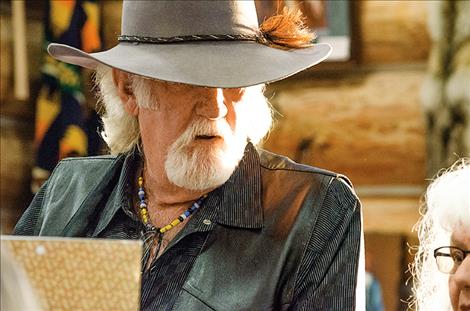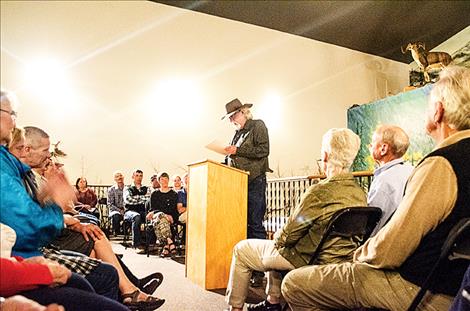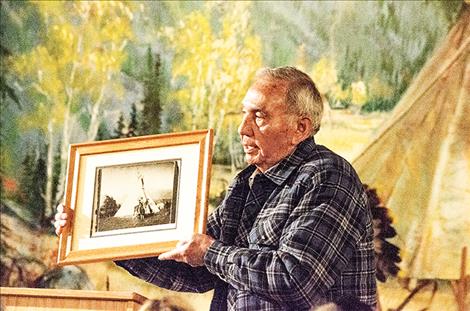Historic rodeo champion once lived on reservation
Hey savvy news reader! Thanks for choosing local.
You are now reading
1 of 3 free articles.
CHARLO – The name of local legend Jackson Sundown was beginning to fade as his story moved into the distant past, but writer Rick Steber of Oregon came to town late last month to revive it.
“It’s an honor to tell the story of one of this area’s greatest horsemen of all time,” he said. “Many people don’t know about him, but they will.”
Steber stood in front of hundreds of children in different schools across the Flathead Indian Reservation and about 100 adults at a book reading at the Ninepipes Museum of Early Montana to tell the story of Jackson Sundown in a deep storytelling voice.
He said Sundown was an iconic western figure who beat the cowboy at his own game. “He was the first non-Caucasian to win the Saddle Bronc Championship of the World and the All-Around title at the Pendleton Round-Up in 1916.”
He described Sundown as being six-feet tall, lean and well-muscled with burnished copper skin. “He wore his thick black hair in long braids and gave off a striking appearance. It was said he looked dignified and even handsome.”
Sundown lived on the Flathead Reservation for a time and married a Salish woman named Pulowsap, and they had three children. While Steber told the story at the museum, Wyman McDonald sat in the audience listening. The stories brought back distant memories and made him think of his own father, John McDonald. “Jackson Sundown was my cousin,” he would say after the reading was over. “My dad rode with him sometimes.” McDonald held a framed photo of Jackson during the reading that he shared with the audience.
Steber continued to say that Sundown was born in 1863 and died in 1923. He grew up with the Wallowa band of the Nez Perce tribe. He was half Salish and half Nez Perce and the nephew of Chief Joseph. His Indian name was Waaya-tonah-toesits-kahn, which means earth left by the setting sun.
Sundown grew up riding horses and eventually became a warrior. He fought against the U.S. Army at the Battle of Bear Paw.
“Rather than surrender, he escaped into Canada, and for a time he lived in Sitting Bull’s camp,” Steber said. “He returned to the United States as an exile, began riding horses at rodeos in Montana, Idaho and Oregon. Eventually – at the age of 53 – he beat the cowboy at his own game (by winning rodeo competitions).”
After the reading, McDonald stood up to share a story about Sundown, told to him by a family member. He said Sundown was at a rodeo and apparently the other contestants didn’t want the legend to win, so they made a small cut in the cinch strap, and it broke. Sundown was able to prove it was cut and get another ride, he said.
After the reading, McDonald took a moment to critique the book written about his cousin. “I haven’t finished it all, but so far, it’s very interesting. Pretty much true.”
Steber said he did a lot of research for the book by talking to several locals including Louie Adams and Bud Cheff, Jr. Cheff’s father also knew Sundown. The problem was that not many people who knew Sundown were left.
“We are losing a lot of these great stories,” Steber said. “I talked to the school kids and I encourage them to capture their family histories and talk to their elders. Every time an old person dies it’s like a library burning down.”















